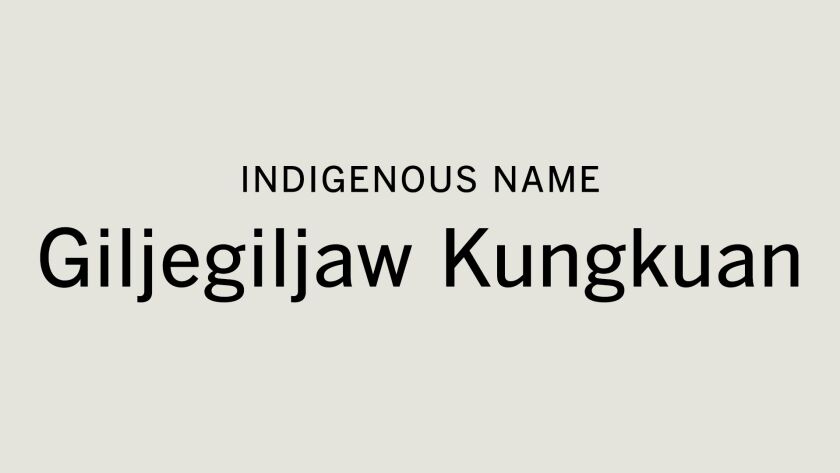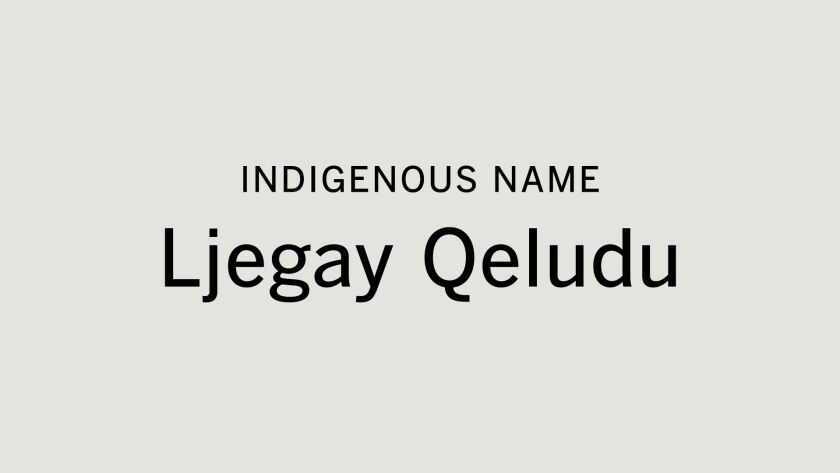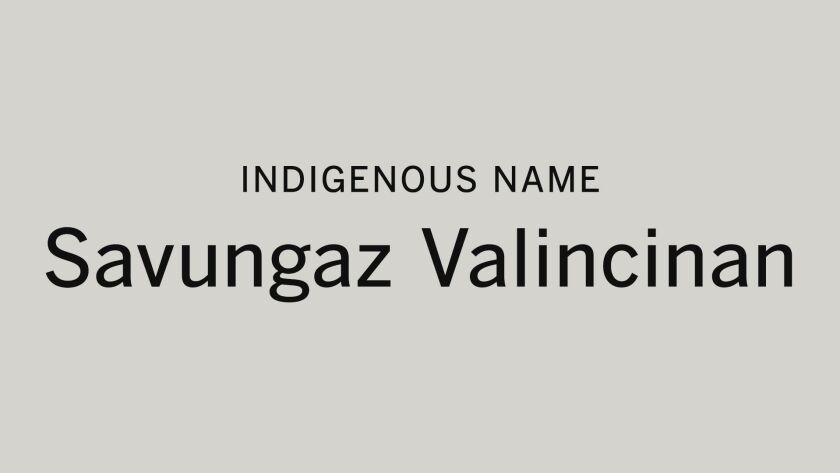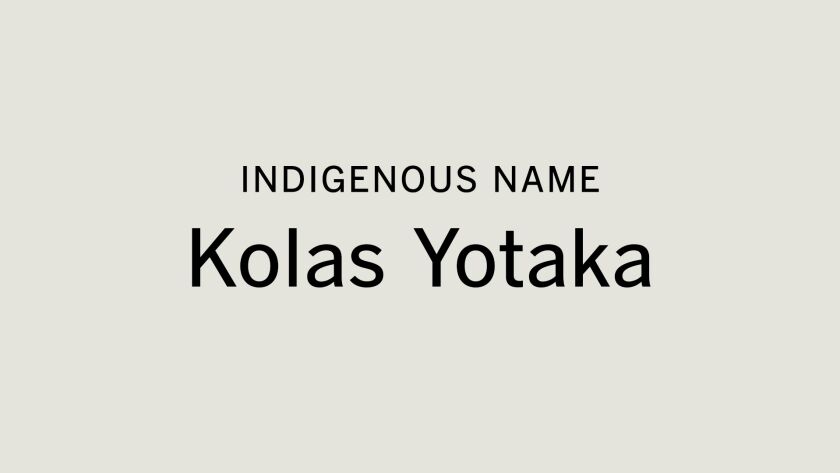The title on his authorities ID when he was rising up — and the way his classmates, lecturers and baseball teammates knew him — was Chu Li-jen.
At dwelling, nonetheless, he was at all times Giljegiljaw Kungkuan, or “Giyaw” for brief, the Indigenous title bestowed on him by his grandmother.
By the point he was a young person, he needed to go by his Indigenous title on a regular basis, as a matter of satisfaction. However his mother and father apprehensive that abandoning his Chinese language title would solely trigger him bother in a Chinese language-dominated society.
In 2019, he lastly made it his authorized title with the Taiwanese authorities after Cleveland‘s MLB franchise — grappling with its personal title points — invited him to spring coaching. He needed to make sure that come the subsequent season, the letters emblazoned on his jersey would learn: “GILJEGILJAW.”
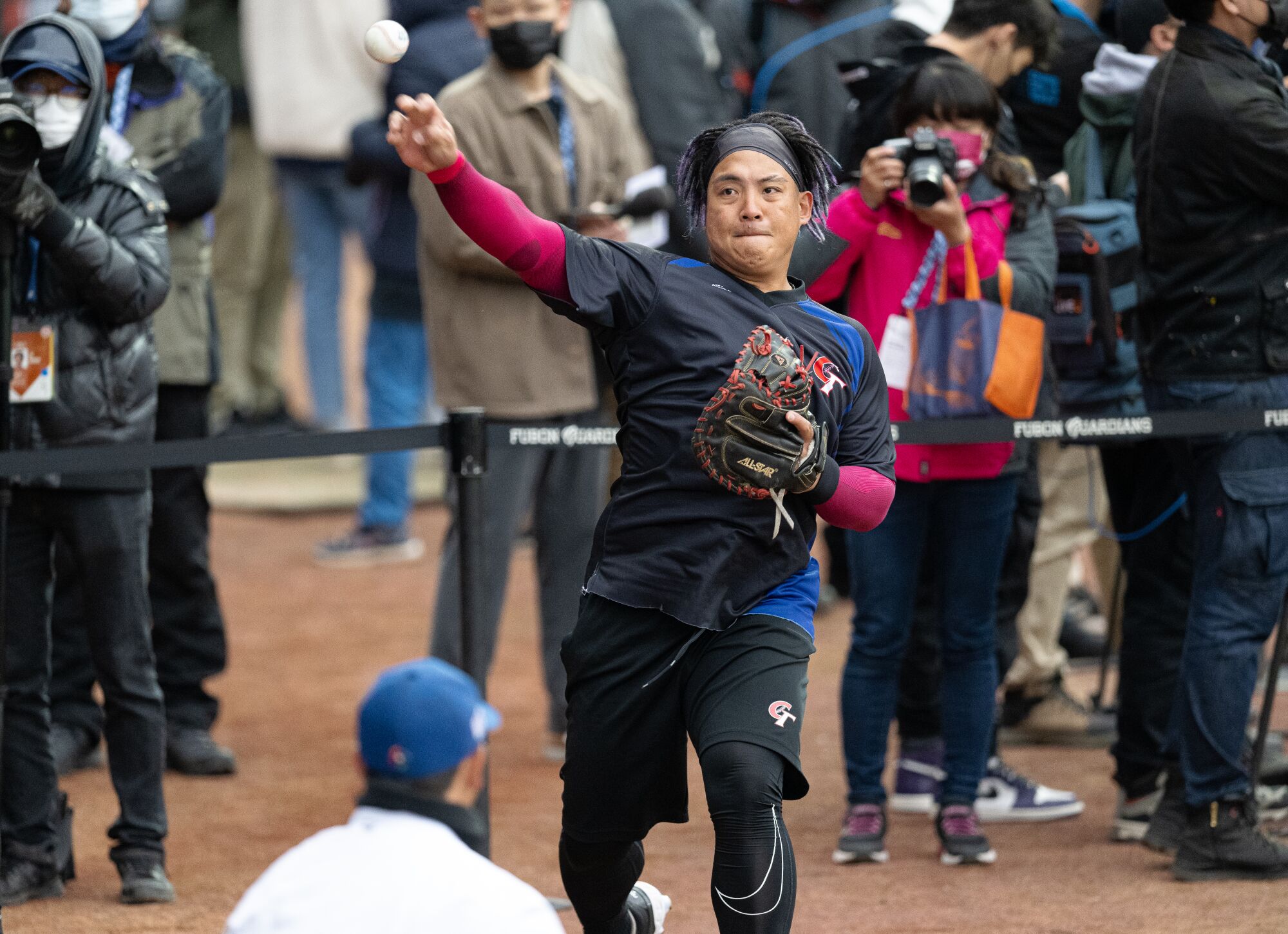
Giljegiljaw Kungkuan of Chinese language Taipei warms up for a follow recreation with the Rakuten Monkeys at Xinzhuang Baseball Stadium on Feb. 25, 2023, in New Taipei Metropolis, Taiwan.
(Gene Wang / Getty Photographs)
“Truthfully I didn’t suppose an excessive amount of about it,” stated Giljegiljaw, 29. “I simply had the easy notion that I needed to hold my title on my again, on my jersey.”
For the 585,000 members of the 16 Indigenous nations recognized in Taiwan, such selections might be complicated.
As relations with China have soured, extra Taiwanese are embracing the island’s Indigenous history as they search a national identity distinct from mainland China, the place greater than 95% of the island’s inhabitants can hint its roots. But, dissuaded by bureaucratic hurdles and fears of discrimination, solely about 5% of Indigenous individuals use their native names in some kind on their authorized IDs at this time.
Ethnic Han Chinese language started relocating to the island in giant numbers throughout the seventeenth century. Migration surged once more after the second World Battle when the Chinese language Nationalist Celebration, higher referred to as the Kuomintang or KMT, took management of the island in 1945.
Solely about 2.5% of the island’s inhabitants is of Austronesian descent, with ancestors previous Japanese, Chinese language and Dutch settlers within the early 1600s. To advertise a nationwide Chinese language identification, the KMT pressured these individuals to make use of Han Chinese language names rather than their very own customs, which fluctuate by Indigenous tribe however usually embody passing down a mother or father title or clan title as a substitute of the surname acquainted to Chinese language or English names.
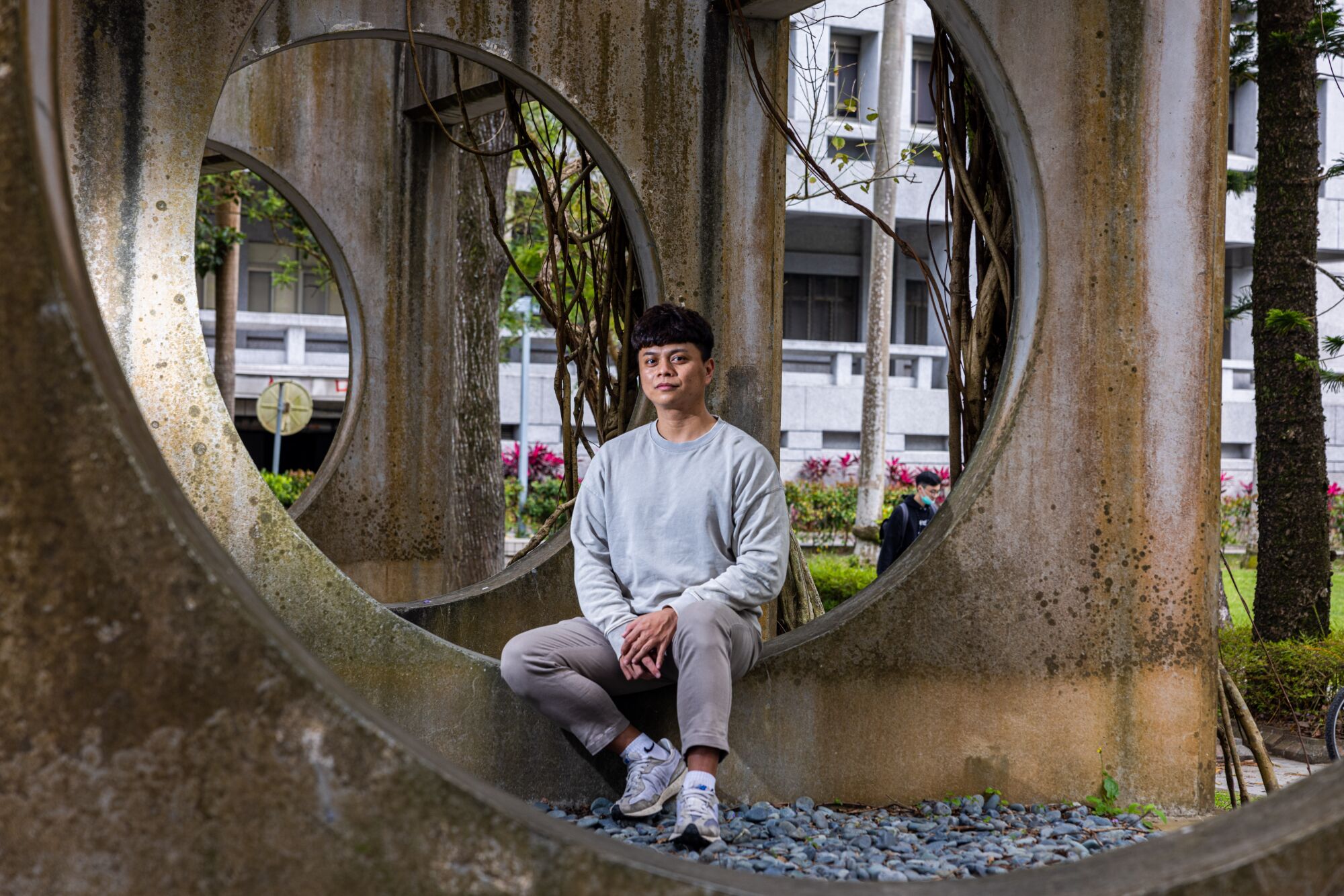
Ljegay Qeludu determined to formally go by his Paiwan title in 2015, which has prompted some complications however is price it, he says.
(Annabelle Chih / For The Instances)
“Our structure says we’re China, however that’s the historical past that the KMT introduced over,” stated Ljegay Qeludu, a 32-year-old Indigenous graduate scholar at Nationwide Chengchi College. “That historical past has nothing to do with mine.”
Previously registered as Chiu Tzu-chieh, he determined to formally go by his Paiwan title in 2015, spending hours at numerous authorities places of work revising authorized paperwork over the course of every week.
Utilizing his Indigenous title to e book a dinner reservation has usually resulted in confusion, he stated. And on journeys to Japan and New Zealand, he’s needed to spend further time at immigration, explaining why his title is twice so long as most different Taiwanese vacationers. Nonetheless, he stated, the minor complications have been price expressing his Indigenous identification.
“It’s actually annoying,” he stated. “However I believe I also can use these experiences to let everybody know extra about Taiwan.”
Few are keen to spend time amending credentials like IDs, driving licenses, medical insurance and financial institution accounts. And those that undertake the customarily longer names can draw undesirable questions or social prejudice, some say.
Within the practically three many years since such adjustments grew to become authorized, a whole lot of Indigenous individuals have returned to their Han Chinese language names due to discrimination or stereotypes, stated Wang Ya-ping, an affiliate professor of ethnic research at Nationwide Chengchi College.
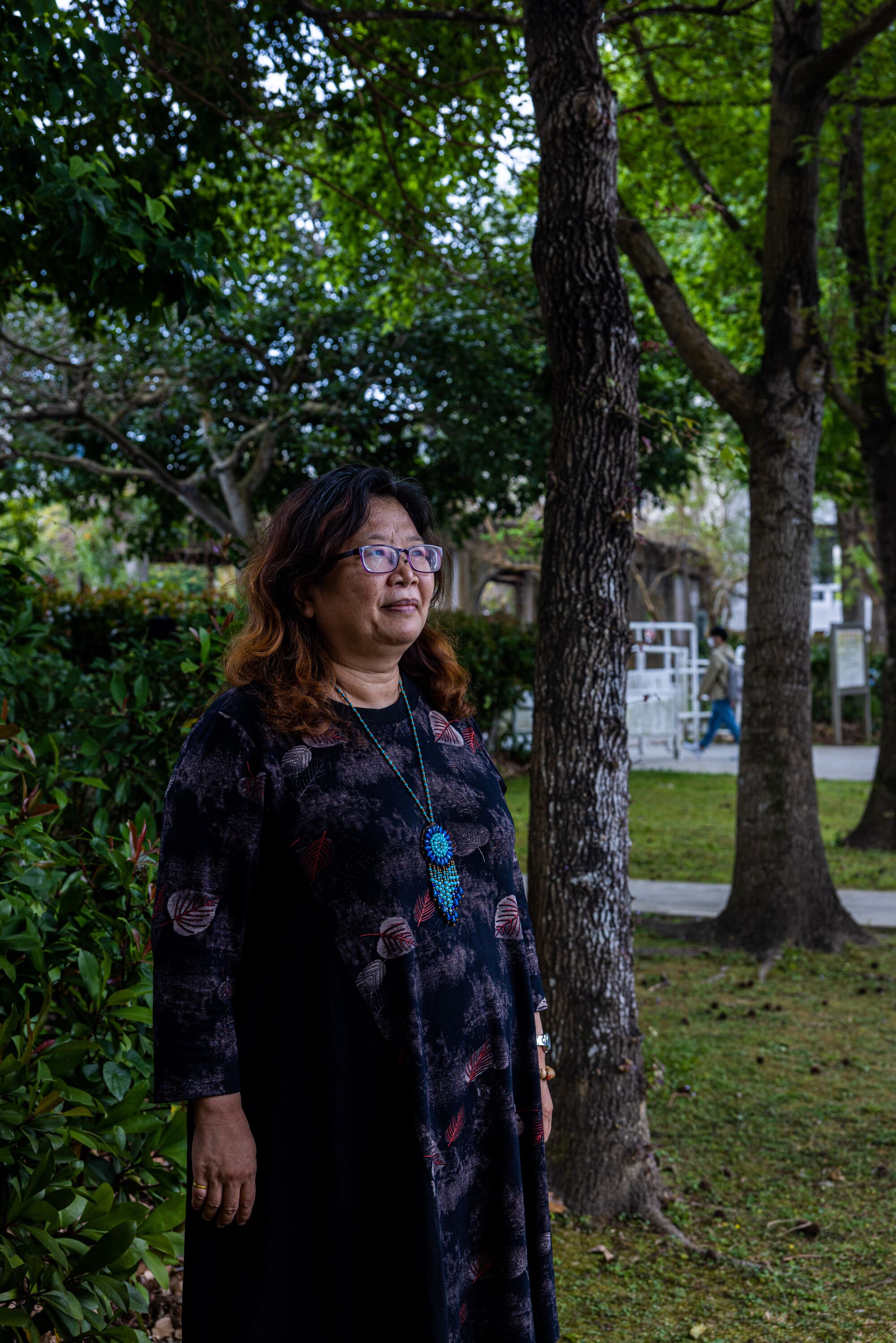
Lots of of Indigenous individuals in Taiwan have returned to their Han Chinese language names due to discrimination, says Wang Ya-ping, an affiliate professor of ethnic research at Nationwide Chengchi College.
(Annabelle Chih / For The Instances)
One other barrier is how these names are written on official paperwork. Indigenous individuals are allowed to make use of both a standard Han Chinese language title or a Chinese language transliteration of their native title, which many complain sounds clunky and imprecise. They will additionally embody what is understood in Taiwan because the “Romanization” of the Indigenous title, which signifies that it’s written out phonetically with the Latin letters utilized in English and different Western languages — the identical method Giljegiljaw’s title was displayed on his Cleveland uniform.
Now some are preventing to drop the Chinese language characters altogether.
In 2021, a bunch of Indigenous activists sought approval from native authorities companies to write their names solely in Latin letters, which they argued had been higher suited to the pronunciation and preservation of Indigenous languages handed down orally. The Ministry of the Inside rejected the petition that 12 months on the premise that the majority Taiwanese individuals wouldn’t have the ability to learn the names.
This 12 months, the ministry stated it will observe the route of the manager department of Taiwan’s authorities, which stated it was contemplating the problem and held a gathering final August to debate utilizing Indigenous languages to register names.
One of many activists, Savungaz Valincinan, nonetheless remembers slights she suffered due to Indigenous stereotypes rising up with a Han Chinese language father and a mom from Taiwan’s Bunun tribe.
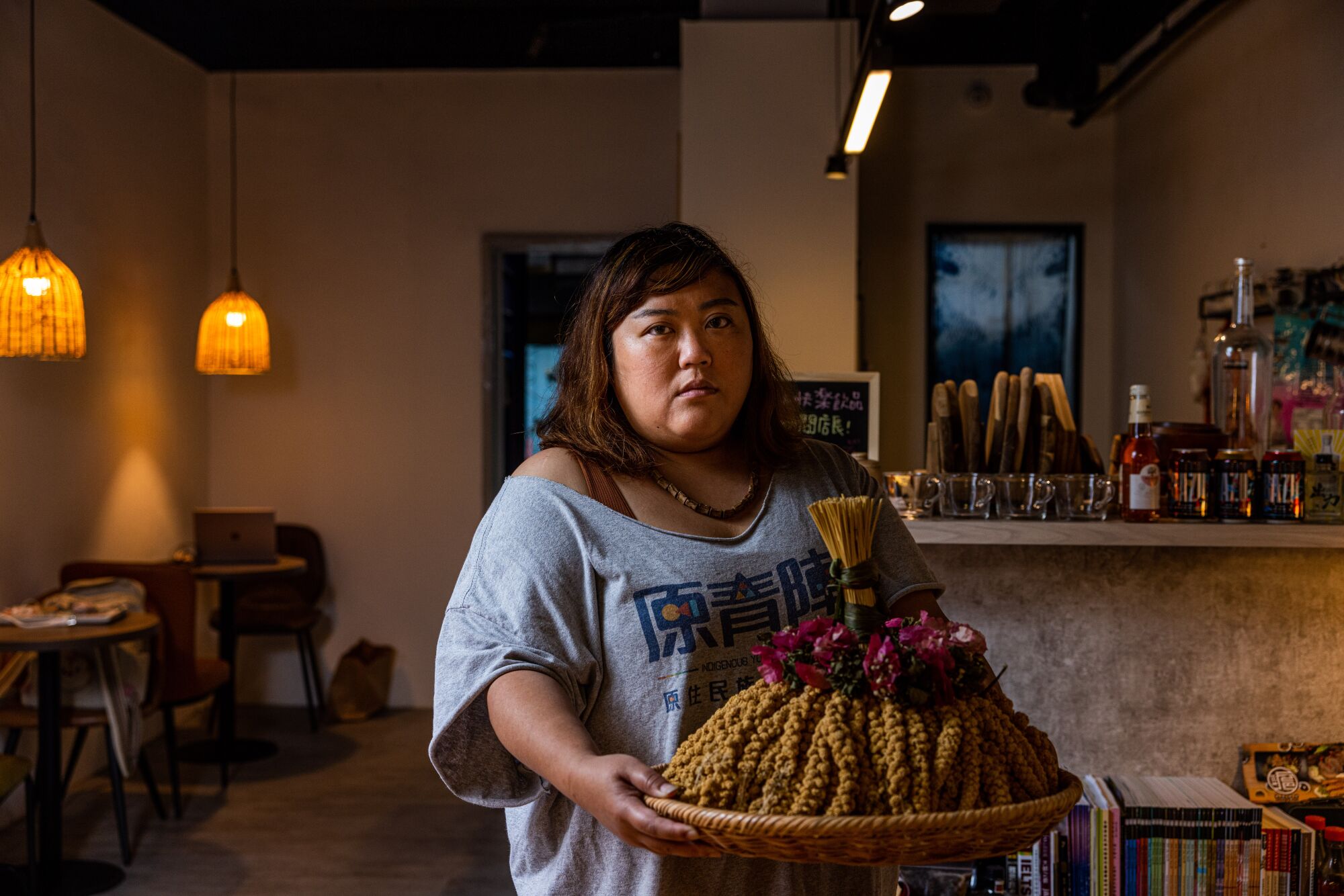
Savungaz Valincinan on March 24, 2022, in Taipei, Taiwan.
(Annabelle Chih / For The Instances)
A schoolteacher, she recalled, commented that though she was Indigenous, she didn’t appear to be she may run very quick. An Indigenous buddy stated Savungaz didn’t seem to be she may maintain her alcohol like different Bunun individuals — that evening she drank herself sick to show him unsuitable.
“It’s not as a result of I need to select between my mom and my father,” the 36-year-old stated of her determination to vary her title. “Rising up, I spent a lot time turning into a mannequin Han Chinese language particular person. However there wasn’t sufficient time to find out about my mom’s tradition, or to turn out to be somebody from the Bunun tribe.”

Like Savungaz, those that have reverted to their Indigenous names stated their decisions have extra to do with embracing their private identification than rejecting Chinese language tradition. However Taiwanese identification — and its hyperlinks to mainland China — has turn out to be a politically divisive topic as relations between Beijing and Taipei additional bitter.
China considers Taiwan part of its territory, and President Xi Jinping has confused the significance of eventual unification, utilizing increased military posturing as a cudgel. After Taiwan President Tsai Ing-wen met with Home Speaker Kevin McCarthy (R-Bakersfield) in Southern California not too long ago, Beijing launched a three-day navy drill to precise its displeasure, working towards precision strikes and a blockade of the island.
Though Taiwan’s Indigenous are a fraction of the inhabitants, many Han Chinese language have additionally embraced Indigenous artists, music and traditions, partly to counter Beijing’s declare that the 1.4 billion individuals on the mainland and the 23 million individuals of Taiwan belong to at least one ethnic household. In final 12 months’s annual identification survey by the Nationwide Chengchi College in Taiwan, a document low of two.7% of respondents stated they thought of themselves to be Chinese language. About 61% recognized as solely Taiwanese, whereas 33% stated they had been each Chinese language and Taiwanese.
Underneath Tsai, who’s one quarter Paiwan, the federal government has promoted Indigenous tradition and labeled all languages utilized by native ethnic teams as nationwide languages. A five-year plan to advance nationwide languages beginning final 12 months consists of standardizing writing methods for Indigenous languages and bolstering academic sources.
Kolas Yotaka, spokesperson for the Workplace of the President and a member of Taiwan’s Amis tribe, stated her determination to make use of her Indigenous title is usually the topic of political assaults, significantly from opponents of Taiwan’s ruling Democratic Progressive Celebration, which has a chillier relationship with Beijing.
After she grew to become a DPP legislator in 2016, Kolas stated the title on her Wikipedia web page was consistently revised to her previous Han title, Yeh Kuan-lin, whilst her assistant monitored the pc, at struggle with nameless editors. Throughout that point, Kolas additionally proposed an modification to permit ID names to be written with solely Latin letters, which opponents criticized as an assault on Chinese language identification and tradition.
The 49-year-old former journalist began going by her Amis title in 2006. Kolas was her grandmother’s title, which implies to separate the wheat from the chaff in her native language. Her Han title has little which means to her, and was derived from the Japanese surname her Amis grandfather used below Japan’s occupation.
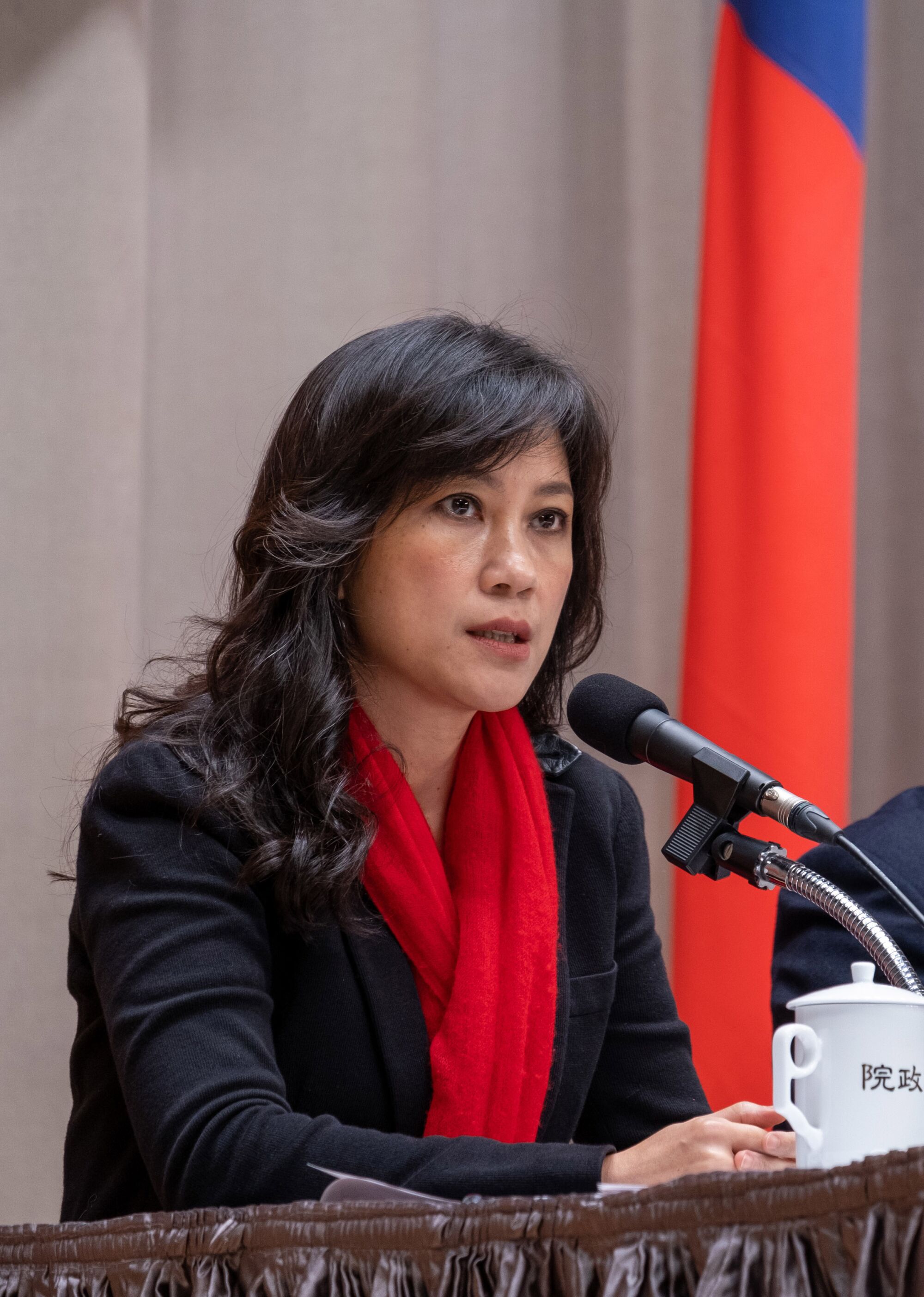
Kolas Yotaka, pictured in 2020, is the spokesperson for the Workplace of the President and a member of Taiwan’s Amis tribe. She began going by her Amis title in 2006.
(SOPA Photographs / LightRocket by way of Getty)
In her run for Hualien county governor final 12 months, Kolas stated, supporters apprehensive that her Indigenous title would possibly deter political donations, if Taiwanese individuals couldn’t learn or write it. Some inspired her, unsuccessfully, to make use of a Chinese language title on marketing campaign posters for broader recognition.
Regardless of such hurdles, Kolas believes youthful generations have turn out to be extra accepting of cultural variations. Whereas she’s usually maligned for utilizing an Indigenous title, she stated individuals have additionally reached out in texts or in Fb messages to her to share small triumphs in going by their very own native names.
“It’s turn out to be the mini-revolution of my life,” she stated.
As for Giljegiljaw, a member of the Paiwan tribe, his teammates in Cleveland discovered his title troublesome to pronounce and took to calling him “Gilly.” He didn’t thoughts.
COVID-19 reduce brief his main league aspirations with the Cleveland franchise, which has since undergone its own name change, from the Indians to the Guardians, to salve criticism that its emblem could possibly be considered as racially offensive.
Giljegiljaw now performs within the Chinese language Skilled Baseball League for Chinese language Taipei — the designation that Taiwan’s worldwide sports activities groups and different organizations use for the reason that island just isn’t formally acknowledged as an impartial state.
In March, he performed within the World Baseball Traditional match in his hometown of Taichung, Taiwan, sporting his Indigenous title on his jersey like he did within the U.S. Nevertheless, more often than not his uniform nonetheless sports activities the Chinese language transliteration, and Chinese language-speaking broadcasters announce him utilizing tonal Mandarin and tender Gs, quite than the exhausting Gs of the Indigenous tongue.
To his father, Kuljelju Kungkuan, it sounds just like the title of a stranger. He’s reached out to a sports activities broadcaster and a neighborhood legislator to request that or not it’s pronounced in his native language. If the participant must be referred to in Chinese language, his father prefers the Han title, which he selected in honor of a Taichung basic.
Kuljelju, who nonetheless legally makes use of his Han Chinese language title Chu Hsin-de, stated he was initially involved about his son going by means of hardships from altering his title. Now Giljegiljaw’s household sends him messages of encouragement, calling him by his childhood nickname, Giyaw, and telling him to maintain up the nice work.
“If I can attain individuals by means of enjoying baseball, and let individuals know who we’re, then possibly there can be extra faculty children who will suppose: I additionally need to use my Indigenous title,” Giljegiljaw stated. “I believe this might be an enormous honor.”
Yang is a Instances employees author and Shen a particular correspondent.


